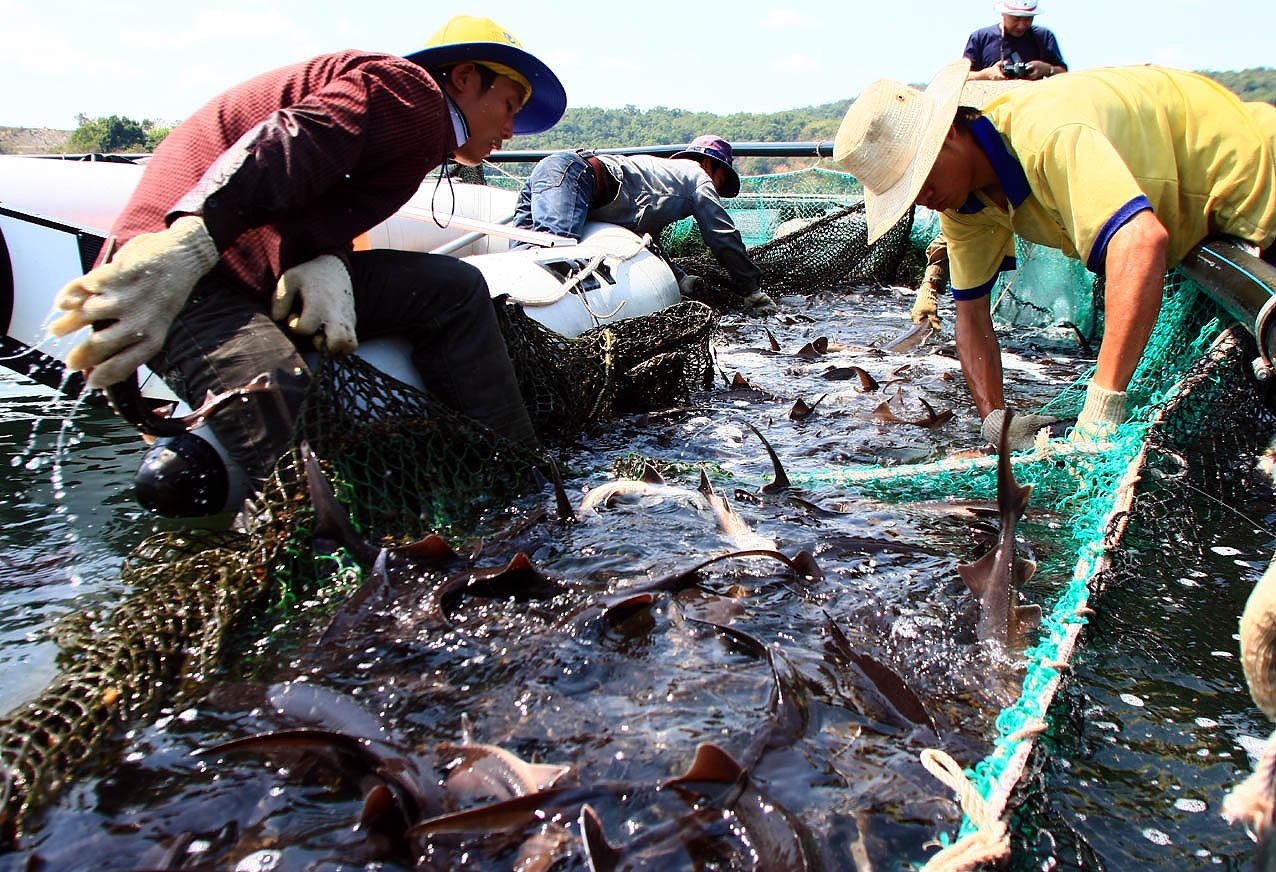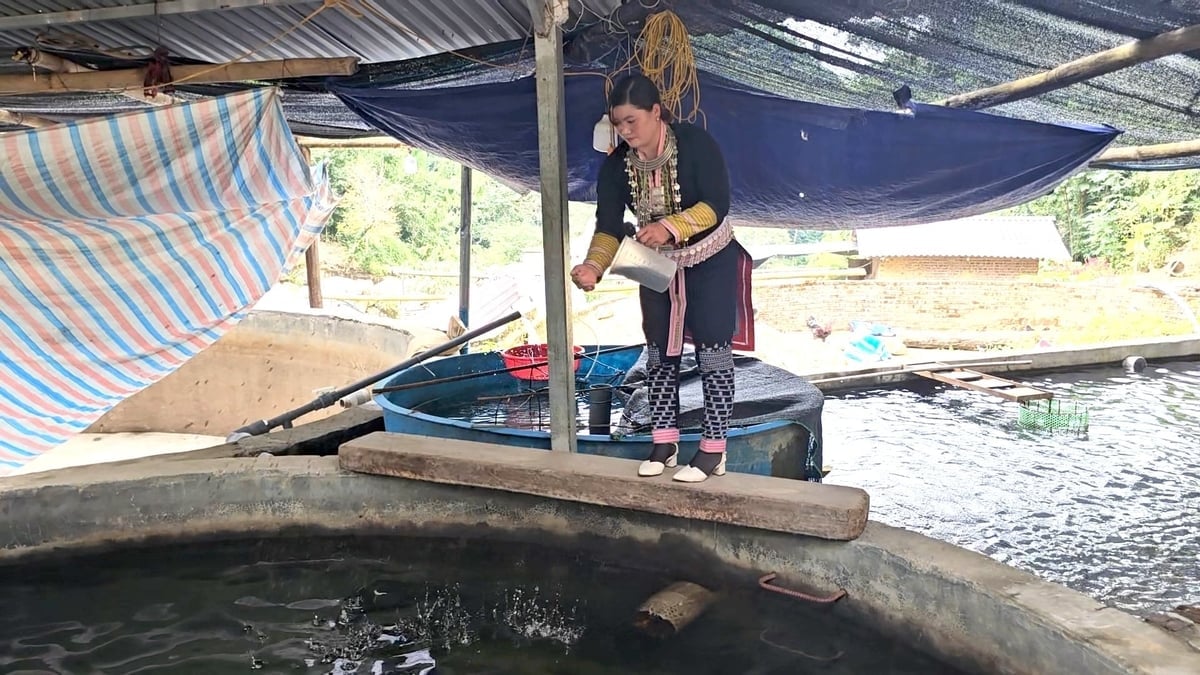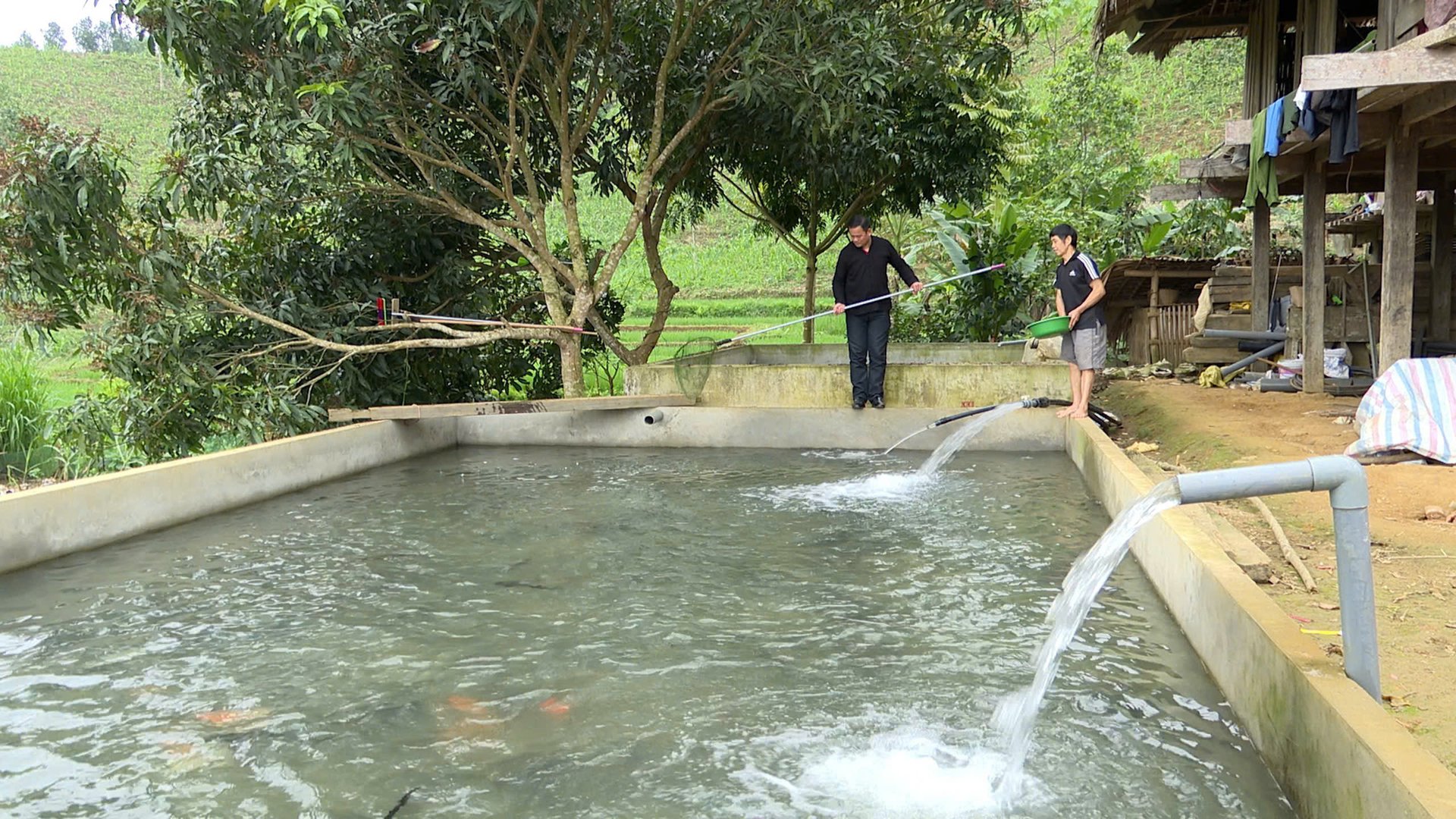November 27, 2025 | 10:58 GMT +7
November 27, 2025 | 10:58 GMT +7
Hotline: 0913.378.918
November 27, 2025 | 10:58 GMT +7
Hotline: 0913.378.918
Recently, the Directorate of Fisheries and Fishery Surveillance issued Official Dispatch No. 1707 in response to the proposal made by the Lao Cai Cold-Water Fish Association in Document No. 05 dated August 4, 2025, requesting tighter control over sturgeon imports into Vietnam.
The Directorate affirmed that the Lao Cai Cold-Water Fish Association has made significant contributions to the development of cold-water aquaculture in Vietnam generally and in Lao Cai in particular. This sector's achievements were recognized at the Conference on 20 Years of Cold-Water Aquaculture and Development Solutions, held on June 7, 2024, in Lam Dong province.
After 20 years of development, cold-water fish farming, mainly sturgeon, has become an important aquaculture activity in the northern mountainous provinces and the Central Highlands. Output has grown rapidly, with production rising at an average annual rate of 49.13% during 2007–2023, making Vietnam one of the world’s six largest sturgeon producers.

Production growth in the period 2007-2023 averaged 49.13%/year, putting Vietnam in the group of 6 countries with the largest sturgeon production in the world. Photo: Hong Tham.
The development of cold-water aquaculture has opened a new direction for the fisheries sector, unlocking the potential of cold-water resources, fostering infrastructure development, creating jobs, increasing incomes, improving livelihoods, and contributing to national security in remote, border areas.
However, the Directorate stressed that under globalization, goods, services, and capital flow freely across borders, and Vietnam’s participation in the WTO and FTAs typically entails commitments to reduce trade barriers.
Therefore, cold-water aquaculture must proactively adopt advanced, industrial-scale production technologies suited to local ecological conditions. These technologies must improve survival rates, ensure efficiency, save water, protect the environment, and enable traceability.
Production models also need diversification, with enterprises at the core, encouraging business–household linkages tied to consumption markets, ensuring quality transparency, enhancing competitiveness, reducing costs, and building the brand value of Vietnamese cold-water fish.
To further develop the sector, the Directorate announced that it would advise the Ministry of Agriculture and Environment to continue negotiating with countries and territories that are strong in cold-water aquaculture to import new, economically valuable broodstock suitable for Vietnam’s ecological conditions.
Administrative procedures will be reviewed to facilitate the import of broodstock and inputs needed for cold-water fish farming.
The Ministry will also direct scientific and technological organizations to improve and transfer breeding technologies, commercial farming processes, and disease prevention methods to ensure seed quality, raise survival rates, and reduce environmental pollution.

Cold-water fish is the main source of income for many ethnic minority households in Lao Cai. Photo: H.D.
Local fisheries authorities are urged to educate and guide organizations and individuals in complying with the Fisheries Law and related regulations in sturgeon farming.
They are also tasked with inspecting compliance with laws governing aquaculture and the management of rare and endangered species, particularly those listed under the Convention on International Trade in Endangered Species of Wild Fauna and Flora (CITES) and Vietnam’s 2017 Fisheries Law. Violations must be detected and dealt with promptly.
Under Circular 25/2018/TT-BNNPTNT, strict monitoring of licensed sturgeon importers is also required, and violations must be publicly disclosed.
The Directorate further recommends that associations and producers educate members to comply fully with the Law on Fisheries, its guiding documents, and CITES provisions, especially regarding certification of production facilities, broodstock origin, and eligibility for farming or artificial propagation of listed species.
Restructuring production around linkages, improving processes to raise quality and reduce costs, and developing a traceable Vietnamese sturgeon brand for domestic and international markets are also emphasized.
Earlier, the Lao Cai Cold-Water Fish Association had sent Document No. 05/HCNL to the Ministry of Agriculture and Environment, the Ministry of Industry and Trade, the General Department of Customs, and the Lao Cai People’s Committee, urging tighter controls on sturgeon imports.
According to the Association, imported sturgeon, mostly from China, enters Vietnam through northern border gates and is sold fresh, directly competing with local products and driving domestic prices down. Low prices fail to cover production costs, forcing many farms to downsize or shut down, leading to losses and bankruptcies. The domestic cold-water aquaculture industry, they warned, risks being wiped out.
Some imported sturgeon has also been sold under the Lao Cai sturgeon brand, undermining market stability and consumer trust.

The Lao Cai Coldwater Fish Association said that thanks to coldwater fish farming, many ethnic minority households have escaped poverty and become rich. Photo: Duy Hoc.
The Association stressed that cold-water fish farming has helped many ethnic minority households escape poverty and build wealth.
To sustain the fledgling industry, the Association requested that the Ministry of Industry and Trade tighten control over sturgeon imports through international border gates, crossings, and economic zones, enforce mandatory quarantine, and require exporters to provide clear, traceable origins.
They also proposed setting import floor prices to prevent dumping and stabilize the domestic market, while creating appropriate technical barriers to protect domestic production.
Trade promotion programs, supply–demand connection events, and incentives for large distributors, restaurants, and supermarkets to prioritize domestic sturgeon were also recommended.
The Ministry of Agriculture and Environment was urged to balance and license sturgeon imports reasonably, possibly using quotas to meet domestic consumption, with no imports allowed beyond the quota.
Other proposals include stronger monitoring of import quality and origin, technical and trade policies to protect domestic farming, consultation workshops with localities, and temporary restrictions on imports given current domestic market difficulties.
Farms should also be supported in forming cooperatives, adopting advanced technologies, and developing linked production chains.
The Association asked Customs authorities to strengthen border controls, require full legal documentation for imports (CITES, quarantine, origin, etc.), and coordinate with relevant agencies to ensure proper import use.
Finally, the Lao Cai People’s Committee was requested to direct the provincial Department of Industry and Trade to coordinate with other agencies to supervise sturgeon trade, transport, and consumption in the province, especially at wholesale markets, border gates, cold storage facilities, and transit hubs—to prevent uncontrolled imports that bypass quarantine regulations.
Translated by Linh Linh

(VAN) After the institutional merger, Da Nang possesses significant forest-carbon reserves and is proactively engaging in the carbon market, creating a new revenue stream.

(VAN) An Giang strengthens communication against IUU fishing, increases inspections and sanctions, and is determined to remove the EC’s “yellow card” while developing a sustainable fisheries sector.

(VAN) As green transition becomes a global trajectory, Viet Nam’s biggest challenge is not only technology and models, but how to ensure that capital flows reach the right beneficiaries.

(VAN) The Ministry of Agriculture and Environment must spearhead the construction of green governance, spanning decision-making processes and investment standards to policy evaluation mechanisms.

(VAN) The Agriculture and Environment sector of Khanh Hoa has achieved numerous milestones over the past 80 years, contributing significantly to the goal of establishing the province as a centrally governed city by 2030.

(VAN) Viet Nam is entering the pivotal period of 2025-2030, moving toward the formulation of the Remote Sensing Law, which will establish a legal foundation for the development of national digital data.

(VAN) The agricultural sector is finalizing the strategic framework for emission reduction, setting the goal of sharply cutting methane and 403.7 million tons of CO2 equivalent and moving toward Net Zero by 2050.